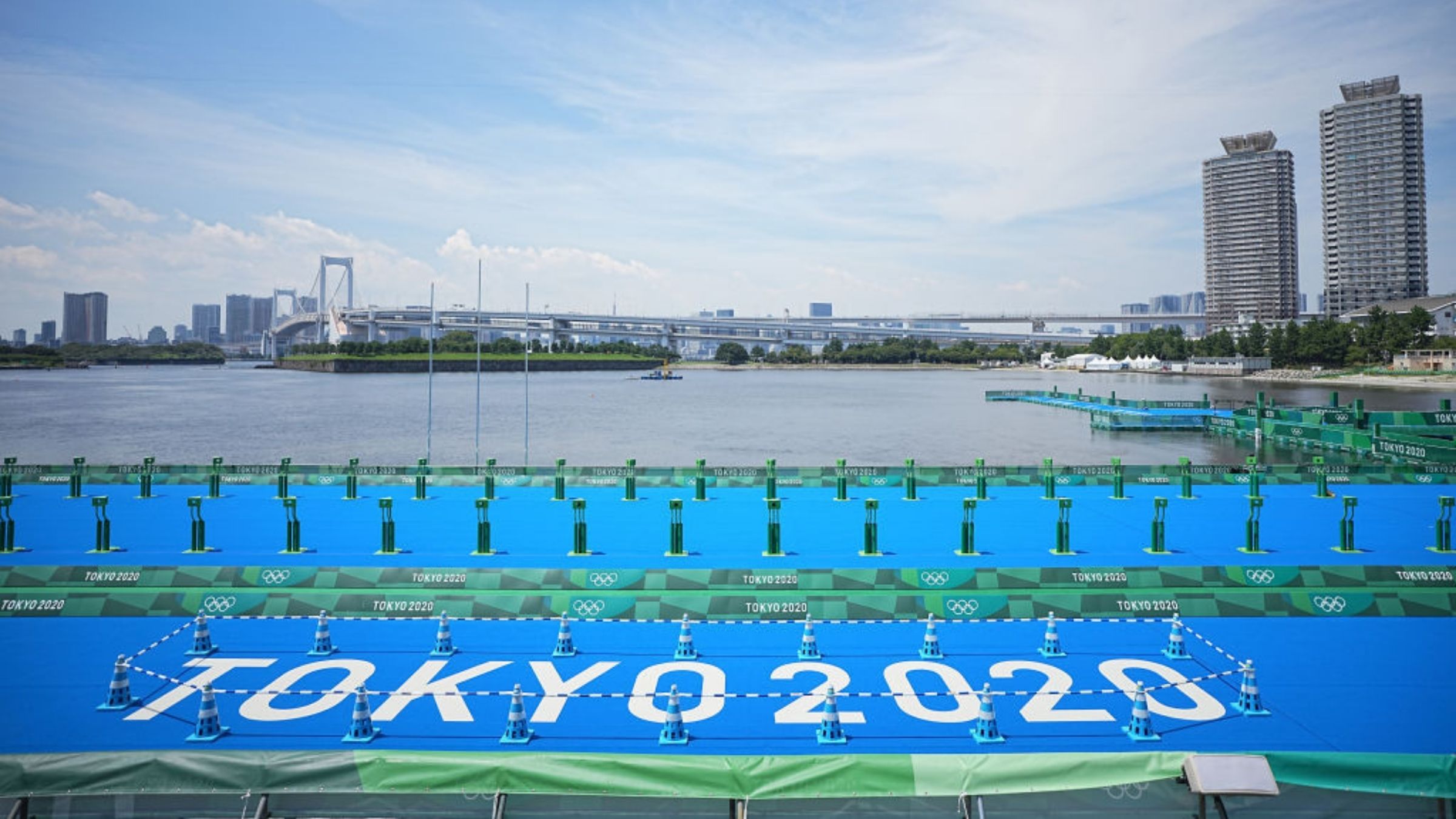Olympic Triathlon By The Numbers

A view of the transition area at Tokyo Bay. The 2020 Tokyo Olympics will take place from July 23 to August 8, 2021. (Photo: Michael Kappeler/Getty Images)
The 2020 2021 2020(?) Tokyo Olympics are unprecedented in many ways: no spectators, tons of precautions, a quick post-Games exit for athletes, and – oh, yeah – some sports too. To help create some sort of familiar anchor in a sea of dystopian images being beamed from one of the most disorienting Olympics yet, we’ve collected some stats, facts, and figures to help make sense of it all.
Numbers nerds, rejoice! Lean back and let the data wash you clean:
The Games In Japan
Olympiads In The Land of The Rising Sun
Japan last hosted the Olympics in 1998 (Winter Games, which still counts). Prior to that, Japan hosted the Winter Games in 1972 and Tokyo hosted the Summer Games in 1964.
Big $$$$ (Gone But Not Forgotten)
According to calculations by Katsuhiro Miyamoto, professor emeritus of economics at Kansai University, the initial postponement from 2020 to 2021 caused a loss of 640.8 billion yen, approximately $5.9 billion USD, in missed economic opportunity. The recently announced spectator-free Games will lose an estimated $22.2 billion USD.
Related: How Will the Tokyo Olympics Happen? Should They?
Vaccination Games
According to counts from Our World In Data on 7/19, 23.3% of the population in Japan is fully vaccinated. This is way up from 7.3% in early July. The worldwide average full vaccination rate is 13.2%, and Japan’s current rate places it at 13th among all nations who report a breakdown between first and second vaccinations.
According to the IOC, over 80% of the residents of the Olympic Village are already vaccinated or have secured an appointment. The visiting media is also reporting a 70-80% vaccination rate.
Balancing Act
At the Tokyo Games, the IOC estimates there will be 11,090 athletes in attendance with a breakdown of 48.8% female athletes to male—the most gender-balanced in the Games’ history, they say. The Paralympics are at 40.5% female—up from 38% in Rio.
Triathlon In Tokyo
Morocco? Egypt? Romania? Australia!
With 38 nations competing in the individual Olympic triathlon event, Morocco, Egypt, and Romania are sending athletes for the first time in the history of the sport at the Games. Australia has the honor of being the only country to send six athletes (three men, three women).
Related: How Australia Hoodwinked The U.S.
Triathlon Doubles In Size (Kind Of)
For the first time in triathlon’s young history in the Olympic Games, the sport will host two events: the individual and mixed relay. Eighteen teams will line up on July 31 to compete over the unique 4 x 300m swim, 8K bike, 2K run distances with each athlete doing their own super sprint and handing off to the next athlete as female/male/female/male.
Related: What is the Triathlon Mixed Team Relay?
The Dirty 30s
If you want to win an Olympic medal (and you believe in superstitions), pray you draw the number 34 for race day. Racers who have worn the randomly drawn number 34 have already won three Olympic medals—one gold and two bronze—according to World Triathlon. Better yet, race numbers 30-39 have accounted for five Olympic gold medals across men and women.
Been There, Done That
Only one person has competed in five triathlons event since the introduction of the sport to the Olympic program: Swiss two-time medalist Nicola Spirig (who wasn’t at the very first Games in Sydney—she was just 18 years old).
Other returning medalists include Vicky Holland (bronze, 2016 Games), Jonathan Brownlee (bronze, silver; 2012, 2016 Games respectively), Henri Schoeman (bronze, 2016 Games), and Javier Gomez (silver, 2012).
Veteran’s Affairs
Of the 110 men and women on the start line at the Tokyo Games, 47 are veteran Olympians. Of those 47, an elite handful of veterans have competed in four or more Games: Dmitry Polyanskiy (ROC), Vendula Frintova (CZE), Flora Duffy (BER), Yuliya Yelistratova (UKR), and Barbara Riveros (CHI)—according to World Triathlon.
Obsessed with the Olympics? So are we. Get your fix with our round-the-clock coverage of triathlon racing in Tokyo.